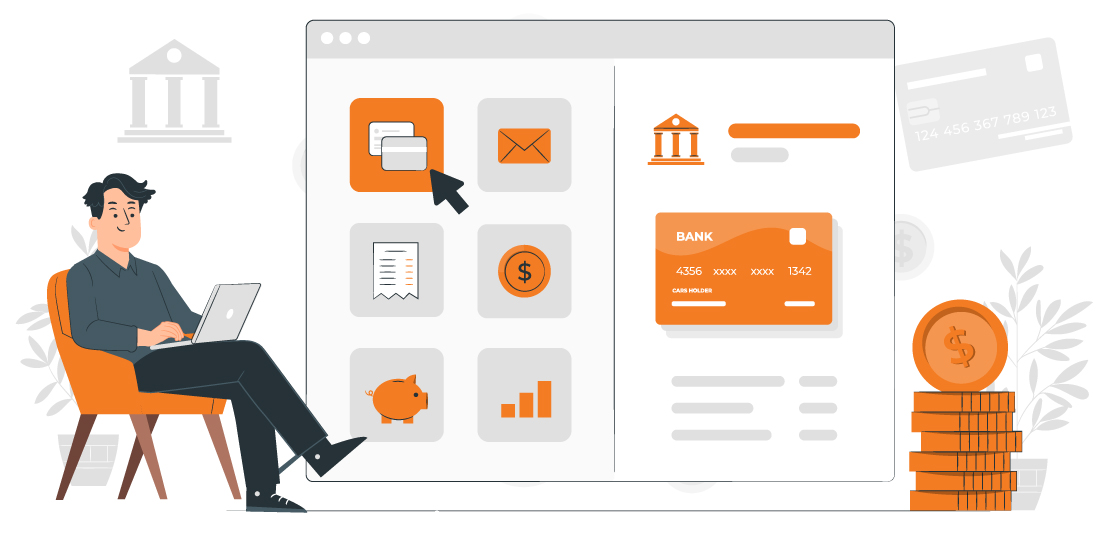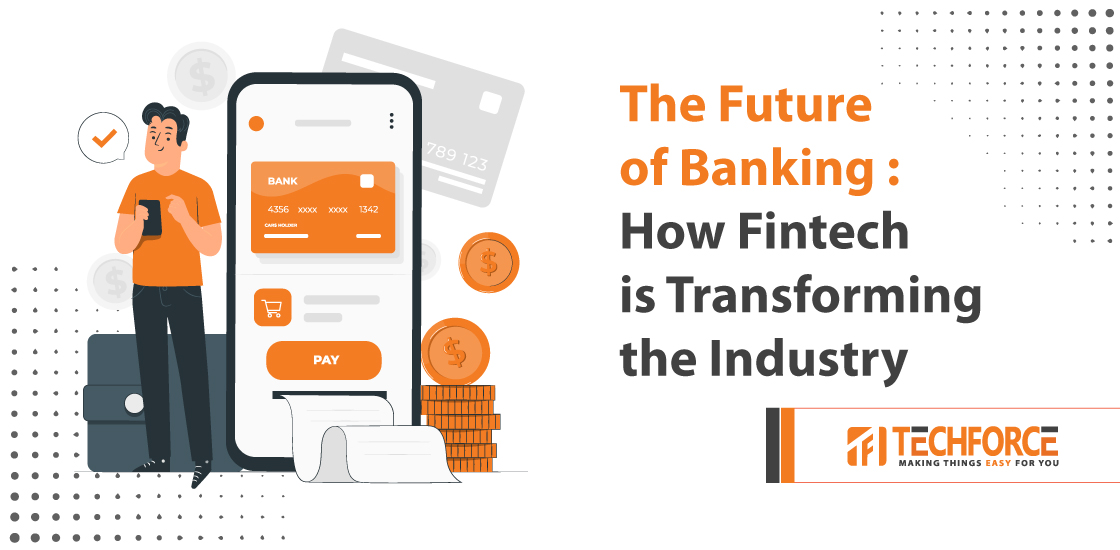The Future of Banking: How Fintech Is Transforming the Industry
The banking industry is undergoing a rapid transformation. As a consumer, the way you bank and manage your finances is changing dramatically. Fintech companies are disrupting traditional banking models and redefining the future of financial services. From mobile payments to online lending to digital wealth management, fintech innovations are reshaping the customer experience.
Established banks are taking notice and partnering with or acquiring emerging fintech firms. They are also investing heavily in new technologies to improve operations, enhance security, and provide a seamless digital experience.
While fintech companies are seeing rapid growth, incumbent banks still control most financial services assets and customer relationships. To compete, financial technology firms will need to continue improving customer experience through innovation while establishing trust with consumers who have long-standing relationships with banks. Collaboration between banks and fintech companies may be the optimal path forward, leveraging the strengths of both to create a more seamless and secure financial system. Focusing on value creation over disruption will be key to transforming banking in a sustainable and inclusive manner that benefits all stakeholders. Innovation should prioritize solutions that empower consumers with tools to gain more control over their finances and reach those underserved by traditional finance. With careful stewardship, the future of banking enabled by technology offers tremendous potential to improve financial health and well-being on a scale.
The result is a banking system that is more efficient, transparent, and customer-centric.
While fintech poses a threat to traditional banking, it also presents an opportunity for incumbents to modernize their business models. The future of banking will be a hybrid model where fintech and traditional players collaborate to better serve customers. As a consumer, you will benefit from innovative products, lower costs, and an improved banking experience overall. The financial services landscape is evolving, and the future looks bright.
The Rise of Fintech: How Embedded Finance Is Disrupting Banking
The rise of financial technology (fintech) companies is transforming the banking industry. Fintech firms are leveraging technology to provide financial services through mobile apps and online platforms. This “embedded finance” model is disrupting traditional banking in several ways:
- Convenience and personalization: Fintech apps offer a seamless digital experience tailored to individual needs. Services are available anytime via smartphone, with customized tools and recommendations based on spending habits and goals. In contrast, banking at a physical branch during business hours with generic offerings seems inconvenient.
- Lower fees: Fintech companies have lower overhead costs than traditional banks, so they can offer comparable services at lower or no fees. For example, free stock trading apps and cash-back reward programs are gaining popularity over paid brokerages and credit cards with annual fees.
- Innovative products: Fintech startups are pioneering new products using AI, blockchain, and other technologies. For instance, crowdfunding platforms facilitate business loans or real estate investments, while robo-advisors provide automated investment management. Established banks struggle to keep up with the pace of innovation.
- Seamless experience: Fintech services are often integrated into the platforms and apps that people already use daily for shopping, social media, budgeting, and more. This embedded experience makes financial services a natural extension of existing habits and workflows. In contrast, traditional banking usually requires a separate login and interface.
While fintech may transform certain areas of banking, established institutions still have key advantages like government protection of deposits, decades of consumer trust, and access to cheap capital. The future of banking will likely involve more collaboration and partnerships between fintech startups and traditional players.
Fintech Innovations That Are Reshaping Banking
As a customer, the innovations in financial technology (fintech) are transforming your banking experience. Fintech companies are leveraging cutting-edge technologies to provide digital financial services that are more efficient, accessible, and personalized than traditional banking.
- Digital payments: Services like Apple Pay, Google Pay, and PayPal offer convenient digital wallets for making payments directly from your mobile device or online. These innovative payment methods are faster and more secure than using physical cards.
- Online lending: Fintech companies like LendingClub and Prosper are using algorithms and machine learning to provide quick loan approvals and funding online. This streamlined process offers an alternative to traditional bank lending.
- Automated investing: Companies such as Betterment and Wealthfront are automating investment management using algorithms to help customers achieve their financial goals. Known as “robo-advisors,” they provide an affordable, digital alternative to human financial advisors.
- Blockchain technology: Blockchain is the distributed ledger technology underlying cryptocurrencies like Bitcoin. Fintech companies are exploring how blockchain can be used to simplify and secure other financial transactions like payments, trading, and lending in a transparent yet anonymous manner.
In summary, fintech innovations are transforming banking to be more digital, data-driven, and customer-centric. While traditional banks are adapting to this new landscape, fintech companies are leading the way to shape the future of banking. By leveraging these fintech services, you have more options to manage your money in a way that fits your needs. The future of banking is bright, and the innovations are just beginning.
How Fintech Challenger Banks Are Competing with Traditional Banks
Digital-Only Offerings
Fintech challenger banks are competing with traditional banks by offering services exclusively through digital platforms like mobile apps and websites. Without physical branch locations, these banks are able to operate at a lower cost than traditional banks and pass on those savings to customers through lower fees and higher interest rates.
Specialized Products and Services
Many fintech challenger banks focus on specific products like personal loans, small business loans, mortgages, or high-yield savings accounts. By specializing in a few key areas, these banks are able to provide a better customer experience and more competitive rates than traditional full-service banks. For example, online banks like Ally Bank and American Express Bank focus primarily on high-yield savings accounts and certificates of deposit.
Seamless Digital Experience
Fintech challenger banks aim to provide an intuitive user experience through well-designed mobile apps and websites. Features like biometric logins, personal finance management tools, and automated savings options appeal to digitally savvy customers. The onboarding process at many challenger banks can be completed entirely through a mobile app, allowing customers to open new accounts without visiting a branch.
Data-Driven Personalization
By operating without physical branches, fintech challenger banks are able to gather more customer data and use that data to provide personalized services. Many challenger banks use algorithms and artificial intelligence to analyze customer data and spending habits. They then provide customized recommendations for financial products that suit each customer’s unique needs. Personalized features like these are more difficult for traditional banks with legacy technology systems to implement.
Fintech challenger banks pose a serious threat to traditional banks by offering lower-cost, specialized, and personalized services through user-friendly digital platforms. To remain competitive, traditional banks will need to accelerate their digital transformation efforts and find new ways to engage customers through online and mobile channels. By emulating some of the strategies used by fintech challenger banks, traditional banks can evolve to meet the changing needs of today’s digital consumer.
Partnerships Between Banks and Fintech Companies: A Win-Win?

Partnerships between traditional banks and fintech companies have the potential to be mutually beneficial. By collaborating, both parties can leverage each other’s strengths to better serve customers.
Access to Data and Advanced Analytics
Fintech companies have access to large amounts of customer data and leverage machine learning and AI to gain valuable insights. Banks can utilize fintech partners’ data and analytics capabilities to improve risk management, personalize customer experiences, and optimize internal processes.
Enhanced Digital Offerings
Many fintech companies are digital-first and are adept at building seamless customer experiences through mobile apps and online platforms. Banks can work with fintech partners to quickly deploy new digital banking products and services to meet the demands of tech-savvy consumers. Some examples include online loan applications, digital wallets, peer-to-peer payments, and automated wealth management services.
Cost Savings
Partnerships with fintech companies can help banks reduce costs through the adoption of more efficient technologies and streamlined operations. Fintech companies are often able to provide services at lower costs due to their lean operating models and specialized focus. Banks can outsource certain functions to fintech partners to cut expenses.
Regulatory Compliance
Fintech companies can struggle with the complex web of regulations that govern the financial services industry. By partnering with established banks, fintech companies can leverage the banks’ expertise in legal and compliance matters to ensure their products and services meet all regulatory requirements. This allows fintech companies to get their innovations to market faster.
While there are certainly challenges to overcome, partnerships between the old guard and the new innovators of finance can accelerate transformation in the banking industry. By combining their strengths, banks, and fintech companies can enhance the customer experience, spur innovation, cut costs, and navigate regulatory complexity together better than apart. The future of banking may depend on cooperation, not competition, between these former rivals.
The Future of Banking: Will Fintech Ultimately Replace Traditional Banks?
The rise of fintech companies poses an existential threat to traditional banks. Fintech startups are innovating at a rapid pace, leveraging cutting-edge technologies like artificial intelligence, blockchain, and open banking APIs to provide superior digital experiences.
Will Fintech Replace Banks?
While fintechs are disrupting certain bank products and services, banks still have some key advantages. Banks have decades of experience, trusted brands, government protections, and access to cheap capital that fintechs lack.
Rather than replace banks, fintechs are more likely to force them to adapt. Banks are partnering with, acquiring, and emulating fintechs to improve their digital offerings. They are also investing heavily in new technologies to enhance security, personalization, and automation.
The Future of Banking
The future of banking will likely involve:
- Open Banking and APIs: Banks will open their data and services to third parties through open banking initiatives and APIs. This will enable new products and partnerships with fintech.
- Digital Everything: All products and services will be digital-first, from account opening to wealth management. Branches will shrink in size and scope.
- Hyper-Personalization: Using AI and data, banks will provide highly personalized experiences, recommendations, and advice for each customer.
- Embedded Finance: Banking services will be integrated into non-financial apps and platforms through embedded finance partnerships. You’ll be able to open accounts, get loans, and more without leaving an e-commerce site or mobile app.
While fintechs have accelerated the pace of change, traditional banks are adapting to stay relevant in the digital age. The future of banking will be one of openness, innovation, and seamless digital experiences as banks and fintech collaborate to better serve customers. By leveraging new technologies and forging strategic partnerships, banks can thrive in the coming decades. The key is embracing change rather than resisting progress.
As you have seen, fintech innovations are rapidly transforming the banking industry. Traditional banks must adapt to this new landscape or risk becoming obsolete. The future of banking will likely consist of a hybrid model where fintech companies and traditional banks collaborate to provide the best customer experience. Banks that embrace open banking and partnerships will thrive, while those that resist change will struggle. For customers, the increasing use of fintech means greater convenience, more personalized services, and lower fees. The next decade will prove pivotal as fintech continues to push the boundaries of what is possible in banking. Though change can be difficult, the future looks bright for an industry on the cutting edge of innovation.
 Shivani Mehta
31 May 2023
Shivani Mehta
31 May 2023
 US +1 (630) 296 6606
US +1 (630) 296 6606
 India +91 (79) 48904529
India +91 (79) 48904529
 Poland +48 (730) 059 665
Poland +48 (730) 059 665
 reach@techforceglobal.com
reach@techforceglobal.com

 Calendly
Calendly
 LinkedIn
LinkedIn
 Whatsapp
Whatsapp
 Fintech
Fintech
 Education
Education
 Ecommerce
Ecommerce
 Healthcare
Healthcare
 Travel & Hospitality
Travel & Hospitality
 Public Sector
Public Sector




